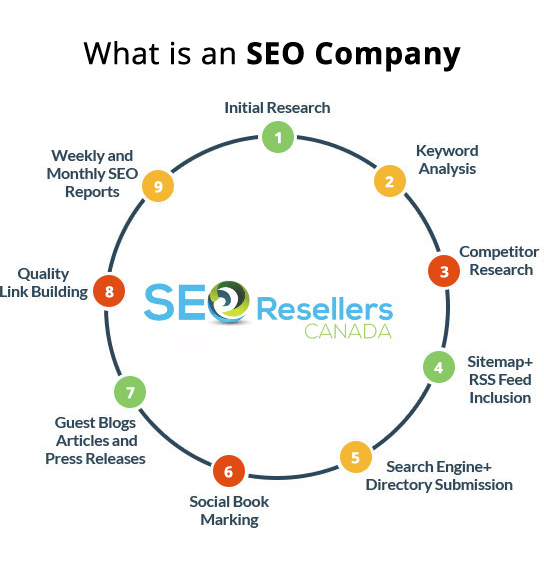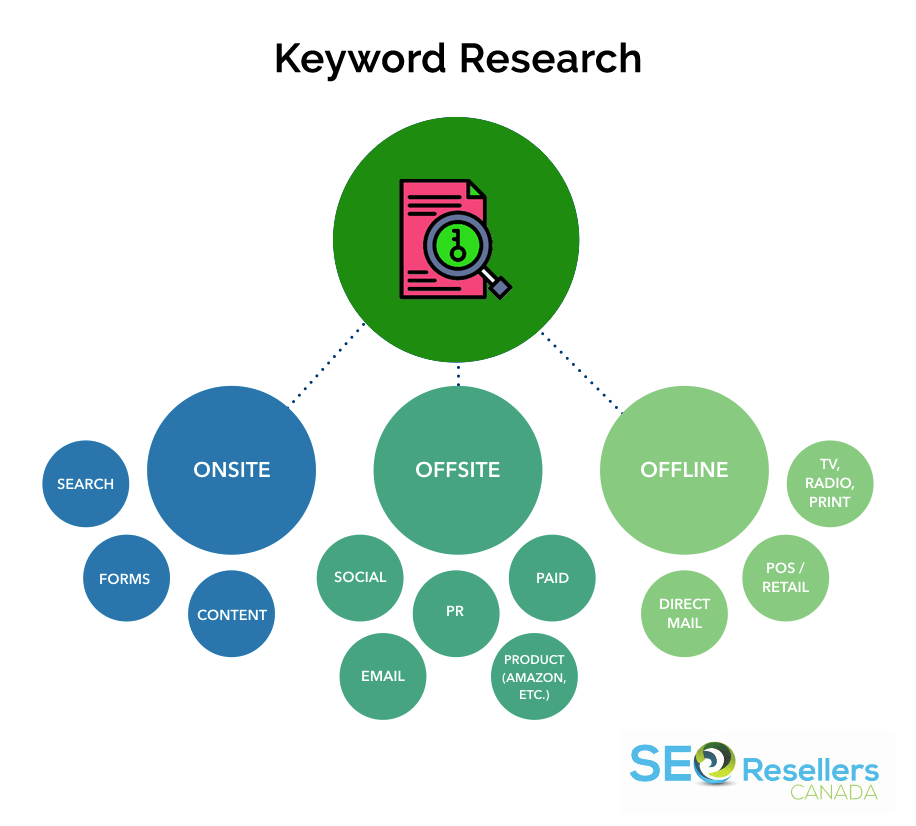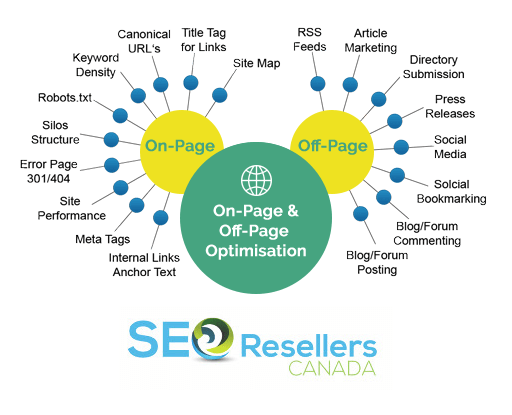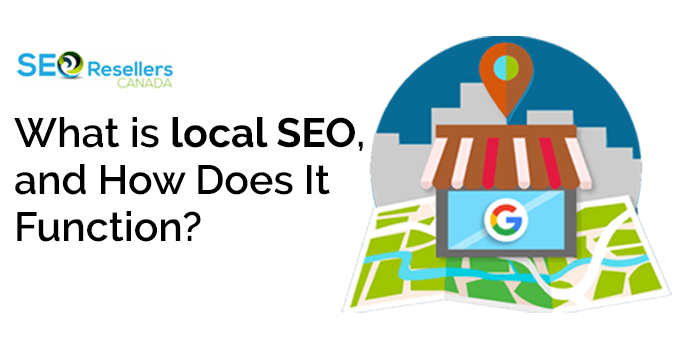Are you planning to go digital? Do you want to run a successful online business? It is imperative that you collaborate with an experienced and reputable SEO company. This is important for all the right reasons but mostly, because your SEO partner will play a pivotal role in realising your entrepreneurial dreams.
Many business owners believe that having a website is merely enough to own a business. However, that’s not completely true. In fact, building a website is one of the many steps in the long journey of running a growing and successful business. So, if you wish to move forward without going astray, then you need to partner with a search engine optimization company.
An experienced SEO firm can help navigate your way to the top, both strategically and with a competitive edge. Continue reading to learn in detail about SEO companies and what they can do to power your online business to success. You can use the table given below to browse through different sections of the blog and get the answers to all your questions.
1- What is an SEO Company?

An SEO company is a firm or an agency that is focused towards helping businesses boost their website visibility on search engines. It works with business owners to create an SEO strategy that drives leads, store visits, phone calls, purchases and more. All this is done through a broad spectrum of SEO services.
SEO stands for search engine optimization. It is basically the process of making strategic decisions pertaining to a company’s website design as well as content in order to make it more attractive for both search engines and its target audience. These changes are necessary to stay relevant, competitive and to appear in the top search engine result pages (SERPs) of your industry.
In short, an SEO service agency offers a wide array of services that can help you achieve your business goals. However, it is important to understand that not all SEO companies are equal. Every SEO service provider is unique, but reputable companies have a similar goal and that is to help grow the business of their clients on a long-term basis.
What needs to be highlighted here is that SEO is not a static product. It is, in fact, a science. Search engine optimization practices are continuously evolving. Therefore, partnering with an SEO marketing agency that works as a natural extension of your business, such as SEO RESELLERS CANADA, is worth it. SEO RESELLERS CANADA is a reliable and experienced SEO company that is dedicated to providing clients with a well-rounded mix of proven and latest search engine optimization strategies to increase your business visibility and attract qualified leads. Through the company’s strategic and quality SEO services, you can surge ahead of other businesses in your respective industry and rank in the top search engine result pages (SERPs) to enjoy a sustainable competitive advantage.
2- Eye-Opening SEO Statistics
Before we walk you through the plethora of SEO services, let us first share some game-changing SEO statistics with you. These statistics are indicative of the importance of search engine optimization for all types of businesses, regardless of their size or industry.
Take a look:
- 93 percent of all web traffic is driven or generated by search engines.
- Google drives 94 percent of the total organic web traffic.
- The rate of conversion for SEO is 14.6 percent, outdoing the 1.7 percent conversion rate for traditional outbound methods.
- Organic SEO techniques and PPC ads, when combined, get an average of 25 percent more clicks and acquire 27 percent more profits in comparison to those who focus on one technique.
- More than 40 percent of the revenue is captured by organic traffic.
- 61% of the marketers claim that improving search engine optimization campaigns and growing a company’s organic presence is their top inbound marketing priority.
- 4 in every 5 consumers use search engines to find local information.
- 18 percent of local searches lead to a purchase.
The importance and power of SEO can’t be overlooked or underestimated. This is clearly evident from the statistics stated above. Search engine optimization allows you to understand how your target audience is searching/finding information about your business and competitors.
Therefore, by taking advantage of search engine optimization strategies, you too can increase your business visibility online and website ranking. Although some business owners choose to optimize their website on search engines on their own, it is recommended to hire a professional SEO company. This is because they employ experts in different areas of search engine optimization, who are abreast of the latest SEO trends and changes. With the help of an experienced SEO services agency, you can fine-tune your SEO strategy, which can further help your website appear higher on the search engine result pages and increase your conversions.
3- SEO Services – What SEO Companies Do
Now that we know the importance of search engine optimization, let us look at the wide range of services provided by SEO companies. This will help you to develop a better understanding of how an SEO firm can assist you to build a strong online presence for your business.
Here is a detailed overview of the services offered by SEO companies. However, the mix of services is variable, depending on the expertise of the company you choose to work with.
3.1- Initial Research—Business Evaluation and Site Analysis
In order to develop a results-driven SEO strategy, good SEO companies focus on performing the initial research and analysis. This is also important because every business, website, and industry is different. What works for one client may not be as profitable or equally beneficial for the other. Therefore, an in-depth analysis of the current performance of a business is much needed to create a well-rounded search engine optimization plan that delivers the desired or targeted results.
Simply stated, there is no one-size-fits-all formula for SEO. Initial research and analysis are crucial to achieving the best results and returns on investment for your online business. It helps identify all the problems and loopholes in your current marketing strategy. Once the SEO company has a clear picture of your online business and the current level of SEO on your website, it can then develop and implement a well-focused plan. This plan can further help overcome the identified challenges and help you to achieve your short and long-term goals.
Under this service, your SEO partner will focus on finding answers to the following questions:
- How well does your site perform?
- What is working for your competitors?
- Where does your business rank on the SERPs currently?
- What changes can be made to your website to deliver the targeted results?
This is the stage where the SEO company will focus on gauging the performance of your website, both in terms of business goals and competition. This also includes a comprehensive evaluation of different components of your website, including:
- Architecture
- Content
- Keyword density
- Weaknesses
- Strengths
This initial research is vital and a service worth using, especially if you want to ensure that your business stays competitive. Once the initial research is complete, your SEO agency can better decide the tactics to use to improve your business’ online visibility and rank for your industry searches.
3.2- Keyword Research

For search engine optimization, keyword research is a must. As a business owner, you need to know exactly what keywords your audience uses to find the services or products that you offer. This research helps identify the keywords that bring maximum traffic to a website.
The power of keyword research lies in understanding your target market. With proper keyword research, you can learn how your audience searches for your products, services, and content online. It is an SEO practice for finding, analysing and using keywords and phrases that people use for finding information.
This particular service can provide you with specific data to answer questions like:
- What words does your audience use to find the type of products/services you have to offer?
- What questions do they type into search engines?
- What is the average monthly search volume for the keywords you want to target?
- What are the most searched and popular keywords for your industry?
Simply put, keyword research service is all about getting to know the language of your audience. It is then used to optimize your web content to improve your search engine visibility and generate leads for your site.
An experienced company has a team of SEO experts who have access to essential keyword research tools and knowledge to identify keywords that bring in targeted traffic. They can perform the necessary research in the fastest time (which can otherwise be time-consuming) for your business. These experts study keywords in terms of competition and searches and then based on this research, they select the best and appropriate keywords for your business and develop a strategy to implement them.
Talking of keyword research, did you know that according to the latest statistics, search engine users are more likely to ask questions and make a statement than just use individual keywords? This means that people now focus on using long-tail keywords. Not including long-tail keywords in your SEO strategy can result in missing out on 50 percent of the total number of searches. However, to avoid this, it makes sense to work with a professional SEO agency. With an SEO company, you can rest assured that they will use a strategic blend of both short and long-tail keywords to optimize your business.
3.3- Quality Link Building and Monitoring
Many SEO companies also offer quality link building and monitoring services. This is one service that every business operating online should take advantage of in order to stay relevant and successful. Link building is one of those SEO activities that are ongoing in nature. Google loves to be fed with a constant stream of quality and new links. This helps search engines know that your site is relevant and updated regularly; thus, it should be featured prominently in its search results.
Link building allows business owners to enhance lead generation. SEO experts do this by publishing backlinks and content on leading websites in your industry, thereby helping you attract the right traffic and generate leads for your business.
3.4- Web Redesign
Your SEO partner may also advise you to redesign your current website to make it more search engine- friendly. They may suggest you redesign your website if it meets the following criteria:
- Is outdated
- Has a high bounce rate
- Has poor code
- Is difficult to navigate
- Not aligned with your brand image
- Has a lower conversion rate
Under this service, the SEO company can provide you with a customized website that is easy to navigate, user-friendly and has a proven layout. Such a web design can churn profits for you by converting web traffic into customers.
From easy navigation to proven layout based on A/B testing to the colour theme, text layout, and flow, a reputable search engine optimization company offers all these services.
It can ensure that the UX flow, content, design and UI are all in-sync so that the site is easy to browse through and delivers excellent user experiences. And needless to say, great digital experiences compel customers to take desired actions.
3.5- Content Creation
Do you know that 53 percent of marketers say that blogging is their top priority? This is because studies show that B2B marketers receive nearly 67 percent more leads if they have a blog. And that they are likely to experience 13 times more returns on investments. Wait, there’s more! According to Search Engine People, updating information on your blog can increase your web traffic by 100 percent. All this shows the importance of quality content creation, which is another area in which most SEO companies specialize. However, some do it better than others.
An SEO company has a team of creative content writers who master the art of creating quality, original and keyword-rich content. By posting quality content regularly, you can ensure that your site is crawled by search engine spiders and ranked in the top searches. Search engine spiders love websites that are regularly updated. Likewise, your audience may also find such content engaging and exciting. Well-written and informative content can add credibility to your business and build trust with your target audience.
Original content optimized with the right keywords can give your business website the advantage that it needs to rank high in the top industry searches and get found by your audience.
3.6- On-Page and Off-Page Optimisation

On-page SEO predominantly includes on-site practices to rank every page of a website high in the search engine page results. This service uses both technical and content elements to improve your web page quality. Therefore, the more on-page SEO that you do, the more targeted web traffic you are likely to get on your website.
There are a variety of technical aspects of a web page that an SEO firm optimizes via on-page optimization. These include:
- Headings
- Title tags
- URL structure
- Alt-text for images
- Website speed
- Internal links
- Meta details including description
- Responsiveness
Besides this, the content aspect of on-page SEO includes:
- Blogs
- Videos
- Interviews
- Case studies
- Reviews
- Whitepapers
- e-Books
- Instructional articles
- Infographics
- Web content
On the other hand, off-page SEO, as the name suggests, refers to the activities that your SEO company performs outside of your site that indirectly impact your ranking within SERPs. Off-page optimizing is equally important as it helps improve your search engine ranking as well as user perception of your website’s relevance, authority, trustworthiness, and popularity.
Apart from creating back-links, other activities that encompass off-page optimization include:
- Social media marketing
- Guest blogging
- Influencer marketing
- Unlinked and linked brand mentions
3.7- SEO Analytics and Reporting
SEO analytics and reporting are also performed by some SEO companies like SEO Resellers Canada. These services provide you with a clear picture of where your business stands. They can help you to measure and monitor the performance of the strategies implemented by your SEO partner. This way, you have a clear idea of what strategies are working for you and areas where your SEO partner needs to focus more on to deliver better results.
By reviewing past performances through tools like Google Analytics, it may help you to unravel positive and negative trends and capitalise on opportunities.
With SEO Resellers Canada, you can also request monthly reporting from your assigned SEO project manager. These reports at a bare minimum cover details, such as:
- Visitors—How many, from when, at what time and why?
- Rankings—Has gone up or down with explanation
- Inbound links—What is new? If your website is in the process of link removal, what’s been removed and why?
4- Key Benefits—How SEO Services Work to Boost Your Business Growth?
A well-rounded SEO plan with the right mix of strategies can take your business to greater heights. Here are some of the many ways SEO services can prove to be game-changing for your online business:
4.1- Improve Website Ranking
SEO strategies, if implemented the right way, can help you spear through competition and rank in the top searches for your industry. And you know what that means? This means that by ranking in the top search results, your business can grow tremendously. This is clearly evident from the facts and statistics that show that the site that ranks on number 1 in Google attracts 33% of the search engine traffic, followed by 18 percent for the site ranking second and the traffic then degrades from there.
4.2- Increase Search Engine Visibility and Attract Qualified Leads
Did you know that 75 percent of search engine users never scroll past the 1st page search results? Therefore, it is important that you get found by your target audience when they search for your industry keywords. This is only possible if you invest in search engine optimization.
Through search engine optimization, you can ensure that your business is visible on the first page of your industry search, thereby getting you qualified leads.
4.3- Enhance Brand Awareness
Another key benefit of utilising SEO services is that it can help secure a share of voice on the search engine page results. This is a crucial component for ensuring brand awareness and establishing a strong brand identity.
Also, when your business continues to appear in the top industry searches, it can gradually establish brand trust among customers. Brand trust is what your business needs to gain a strong foothold in the industry and come across as an authority.
4.4- Boost Site Conversion Ratio and Return on Investment
A well-devised SEO plan can do more than just attract leads to your business. SEO services like web redesign, content creation, and on-page site optimization strategies can make your website more compelling. These strategies can help deliver quality user experience, thereby converting leads into sales and boosting your ROIs.
4.5- Assess the Current Technical Health of Your Business Website
By availing SEO services, you can easily learn about the current health of your website. Services like initial research and site analysis can help you identify and fix technical issues, such as 404 issues, dead links, and site speed, that may otherwise hamper the ranking as well as the growth of your website.
5- How to Tell the Difference Between a Good and Bad SEO Company?
The boom in the e-commerce industry has further led to an increasing demand for SEO services. Today, every business operating online wants to make sure that they stay on top and get found by their audience.
Therefore, to tap the market and make quick money, many people are now entering the SEO industry without any expertise. These fly-by-night companies are a hoax. But what’s unfortunate is that it’s not easy to tell the difference between a good and bad SEO company. And that’s exactly why many business owners fall prey to them.
However, you don’t have to worry about that because we’ll share with you some points on how to differentiate between a good and bad SEO company.
5.1- Unrealistic Guarantees
If a company promises you unrealistic SEO results, that is definitely a red flag. Thus, watch out for companies that make unrealistic guarantees like getting your business in the top searches overnight. This is possible through black hat SEO strategies, but the truth of the matter is that these strategies can hurt your business in the long run. So, it is best that you avoid working with such SEO firms that can do a great deal of damage to your business.
Here it is important to understand that black hat SEO is unacceptable. It basically refers to strategies and techniques that are used to achieve a higher ranking by breaking the search engine rules. These strategies are mostly used by those who want quick returns and are least concerned about their brand image, reputation and market standing.
Some of the many techniques used in black hat SEO include the following:
- Keyword stuffing
- Hidden texts and links
- Link farming
- Spamming blog content
Since these techniques break the search engine rules, business owners’ end up facing serious consequences. Their site gets banned or de-indexed from the search engine results. Furthermore, they also get penalized for using unethical techniques. Also, the ranking of their website drops significantly, which negatively harms their search engine visibility, brand image, and online presence.
On the other hand, a reliable SEO company will never make such promises. Instead, they will provide you with a strategic plan that focuses on a combination of white hat SEO strategies in compliance with the search engine optimization rules. Furthermore, they’ll also give you a rough but realistic estimate, showing you how much time it would take your site to gain the ranking that you desire.
In short, a good SEO company doesn’t make grand or unrealistic promises about getting your business on top of Google miraculously and overnight. Yes, they may work their way to achieve that end goal, but that most certainly takes time and patience.
5.2- Work Approach

Another key difference between a good and shady SEO firm is their work approach. As mentioned above, a shady company is in the business to make quick money and not the least interested in what they are putting at stake, which is your brand reputation and success. A shady or bad SEO company will rely on black hat strategies to get quick results. Moreover, they will skip the implementation part without making your site audit or analysis their first priority.
An honest SEO company will first analyze your website to pinpoint the things that they need to change or tweak in order to optimize your business.
5.3- Automation
For business owners who are new to the e-com industry, they need to be aware of the so-called proprietary automated systems that shady companies sell to make money. That’s right; a sure-fire sign that it’s time to end a conversation is when the SEO company offers you their automated system like a program or plug-in. They claim that these systems are programmed to get fast results and do everything for you effortlessly.
Automation may sound appealing, but SEO is an ongoing process that involves strategizing and plenty of other work. All of this can’t be set on auto-pilot. Automated systems employ shortcuts and can hurt your business in the long-run.
5.4- Relying on Backlinks
Backlinks are viewed by Google as endorsements by other websites. These endorsements add to your business credibility. This means that if you have backlinks on other websites, search engines will view them positively, which will further impact your ranking.
However, here is the catch. Not all backlinks are quality links. There are good backlinks and bad backlinks. Shady companies often rely on bad backlinks. A bad backlink is a link that is created on sites that have no relevance to your website.
Let’s say yours in the business of selling clothes. In general, a good backlink will be one created on a website relevant to yours like a fashion website. However, if you have links on deer hunting or an automobile website, then that will be basically useless. After all, a deer hunting site has zero relevance with your site that sells clothes. So, before you choose an SEO firm, learn about how they will create backlinks for your business.
5.5- Evaluate Previous Work
One of the best ways to assess the performance and credibility of an SEO company is to evaluate their previous work. When searching for an SEO company, ask them to share with you their previous work for example.
A reliable SEO marketing agency will not be hesitant about sharing their previous work with clients. In fact, such a company will be ready to share their testimonials, reviews, and project work with you confidently. It is important that you view their previous work because it can give you a clear picture of the company’s reputation, performance and customer service.
Another great way to evaluate the company’s previous work is to check where the previous customer stands in the search results.
5.6- Service Rates
SEO service rates are variable, but they can be used to differentiate between a trusted and shady company. If you are wondering how it is tricky but here are a few ways to keep you away from such companies:
- When the services are overpriced in comparison to the majority of what other companies offer.
- When the company is willing to negotiate prices.
Remember that a quality SEO agency will give you a quote based on the work that is required to improve your site and optimize it.
5.7- Freebies
A reliable and authentic company gives potential customers a chance to try their services. This can be in the form of a free service trial, e-Book, initial consultation or maybe a blog explaining what they do and how they work. Good SEO companies know that it is vital to give an indication of what they have to offer in order to gain the trust of customers. It is the first step to building a trust-based relationship.
5.8- Customer Service
This is yet another factor that you can use to assess the credibility of the company that you are planning to partner with. By checking customer service, you can assess how well the company looks after their clients.
One of the easiest ways to establish this is to send an email or give them a call and see how long it takes for them to return contact. If the service is spontaneous and they respond in a courteous way, then it is a good indication that they value their customers. Remember that SEO companies that go above and beyond will offer customers easy to contact options like a contact number, online chat form, or social media messaging.
6- Questions to Ask Before Hiring an SEO Company
Here are some crucial questions that you must ask an SEO company before you take on their services:
6.1- Can you itemize the SEO services that you intend to offer as part of the strategy?
A good SEO firm will be transparent and happy to provide you with a clear strategic plan. They will share with you all the possible services that they intend to use as part of the strategic plan while a shady company may not do so. Such companies may be reluctant to enumerate the work that they intend to perform to get you numbers.
6.2- How Will the Content on My Site Be Optimized?
This is a key question that you can’t miss after all content is king. Therefore, you must ask your potential SEO partner about content creation and optimization. Ask them questions like:
- Will your company create new content or work with the existing content?
- How will you optimize it?
- Will your team create new landing pages?
6.3- How do you Build Links?
As discussed in the previous section, link building is crucial to the success of a website. So, make sure to ask them about their link building tactics and check if they intend to adhere to Google’s guidelines or not. Never take the risk of building spammy links that violate the guidelines of search engines as your site can be penalized. Moreover, such activities will never help you achieve your goals and experience long-term sustainable success.
Some important questions pertaining to link building that you can ask them are:
- What kind of links will you build and how?
- How many links can we expect on a monthly basis? (expect an estimate)
- Does your company have a relevant link placement database?
- What makes a quality backlink?
- Will your company comply with Google’s link building rules?
6.4- How much experience do you have?
When selecting an SEO company, always work with a firm that is experienced and trustworthy. Learning about their experience can give you an idea of their expertise. You will be able to gauge whether or not they have worked with similar websites before. And if they have worked for similar businesses as your business, then what results were they able to achieve for them?
Besides that, the company’s experienced SEO staff is knowledgeable about the key performance indicators, has industry-specific information and stays up-to-date with the latest industry trends.
6.5- What is your Work Approach?
It is best to work with a firm that is highly customer-focused and dedicated to delivering complete customer satisfaction. You need to find a company that doesn’t follow a cookie-cutter work approach as every business is different and has different goals and needs. In the SEO industry, there is no one-size-fits-all approach.
A good SEO company will first sit with you to understand your business and goals. They will then evaluate your current online business performance and then devise a strategic SEO marketing plan accordingly to help you overcome your challenges and achieve your goals while ensuring that your business grows with a sustainable edge.
Furthermore, a reliable SEO company will also keep you updated about the work progress and SEO campaign performance. This is carried by providing clients with transparent reporting services on a weekly or monthly basis.
7- Conclusion
In a nutshell, having a strong online presence in today’s business world is crucial for your business success. To achieve this goal, search engine optimization is a must. SEO is, perhaps, the best way to improve your search engine visibility and get found by your potential customers—locally and globally. However, how you strategize and execute your SEO plan will determine your ROIs. Therefore, it is advisable to do some legwork before you select your SEO partner. Always work with an SEO company that is reputable, reliable, experienced and customer-driven because search engine optimization is an ongoing process—not a one-time thing.
Therefore, do your research and join hands with a trusted partner who can take your business to greater heights.
Editor’s Note: This post was originally published on December 06, 2019, and has been completely revamped and updated for accuracy and comprehensiveness.












